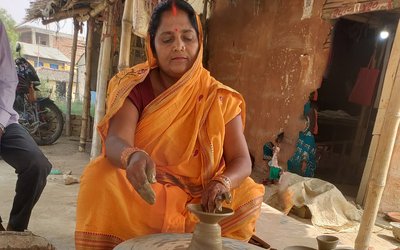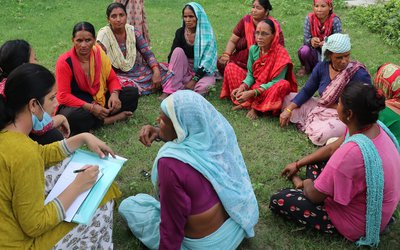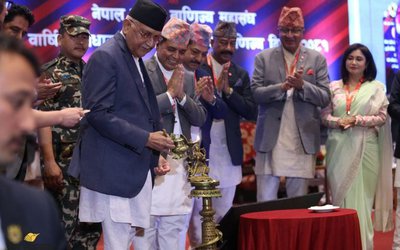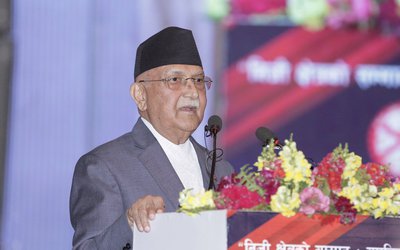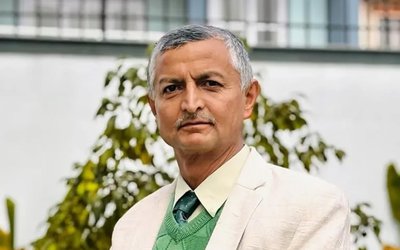When Chandra Shumsher initially and later Juddha Shumsher wanted to start some small scale industries in Nepal they had to get the permission of the British, the colonial rulers of that land. The astute British allowed the import of as little machinery and raw materials as was necessary so that the material produced in Nepal was just ‘adequate for the needs of the country’ and would not affect the trade that the British were conducting both in India and with Tibet in the North. Originals of such comments can be seen at the India Office Library in London.
The present blockade of Nepal by India has been put into place to teach the Nepalis a lesson. We did not learn from our experiences during the reigns of both King Mahendra and King Birendra. The second one in 1989/90 lasted as long as fifteen months and as the Nepali ambassador in Delhi at that time stated, ‘not even a needle was allowed.’ Nepal coped with the situation then as there was no internal conflict in the Terai or Madesh as it is known now. This time the picture is totally different as a result of the internal conflict going on in the country. The surprising aspect of all this is that we the Nepalis have not learnt from our mistakes in the past. The future is therefore dismal and unclear.
The country has been under great stress following the Indian embargo on goods entering Nepal. Both Dasain and Tihar, a time of homecoming, joy and revelry were shrouded in gloom with skyrocketed prices and worries of how one could get to one’s destination and then return back. Who was to blame for this? It is true that India played a great role in bringing about the democratic process in Nepal but their attitude ever since has been to act like a ‘Big Brother’ ever ready to harass and bully its younger sibling.
When the British left India in 1947, the former colony was portioned to create the Hindu country of Bharat / India and the Muslim country of Pakistan. Some sources have stated that the British had even threatened Pandit Nehru that if he did not agree to partition, the alternative was Balkanisation. The former states or principalities had the option of joining India or Pakistan or even opting for independence. Hyderabad as a problem then was soon solved but Kashmir remains as a sore point still. Late Sardar Vallav Bhai Patel then Home Minister, a great hero of Narendra Modi was the stalwart responsible for the creation of the Union of India. The subsequent tete-tete of Pandit Nehru and Premier Chow en Lai of China in the 1950s led to the Panchasheel concept for foreign relationships. The gist of it then was a mutual understanding that Tibet and Nepal would be under the spheres of influence of China and India respectively.
We Nepalis pride ourselves of the fact that Nepal has been an independent country from time immemorial whereas India, Pakistan, Sri Lanka and Burma (Myanmar) only got their freedom in the middle of the twentieth century. What must be kept in mind is that the British, a ‘Nation of Shopkeepers’ as Napoleon called them, never wanted to control Nepal as it would have been a perpetual source of expenditure for them. Following the Treaty of Sugauli in 1816, they glorified the image of the Gurkhas and started employing them in the colonial Indian army. The Gurkhas, being professional soldiers took active part in preventing bloodshed at the time of partition and are still serving in both the Indian and the British army with full professional expertise.
After the Treaty of Sugauli, the subsequent visit of Jung Bahadur to England, as a first Native prince from this part of the world in 1856, his reception and meeting with Queen Victoria ensured that he took the side of the British in the Indian Mutiny of 1857. The result of all this is that Britain has been a friend of Nepal for the last two hundred years as has been most recently voiced by the renowned soccer player David Beckham when he visited Nepal in the first week of November 2015.
The sad part of all this is that it was the British who were responsible for the closure of our Northern routes following the Younghusband Mission to Tibet in 1904 and the closure of all trade routes except that passing through Kalimpong which the British themselves controlled. Later came the Simla accord of 1914 and the institution of the McMahon Line with Tibet. Our centuries old trade with Tibet was affected initially then and later after the fall of Chiang Kai-shek.
The fact was that the British, even when they were taken up with the Russians wanted to keep Nepal, Sikkim and Bhutan as buffer states between the Indian Sub-continent and China. The Greater Nepal of one time has all but disappeared and what remains seems to be under threat of division. Will it follow in the wake of Sikkim or be allowed to exist in limbo as Bhutan currently? Have the current Nepali leaders, who tend usually to visit New Delhi for medical treatment but instead have signed 6 or 12 point deals in Hindi which they did not fully understand, sold their souls? If they did, is it not time for them to make a clean break, confess and tell all to the Nepali people? Then they have to ask for forgiveness. Currently, because of closure of almost all industries we are experiencing little load-shedding, but at what cost? The massive earthquake of April 2015 and this unofficial embargo by India is definitely going to affect the development of Nepal for many years to come.

Hemang Dixit
The author writes fiction under the name of Mani Dixit. Website: www.hdixit.org.np. Twitter: @manidixithd
- Top Heavy
- Sep 20, 2023
- Most Able?
- Sep 04, 2023
- Changing Times
- Aug 21, 2023
- Nepali Shenanigans
- Aug 03, 2023
- Budget Naataks
- Jun 29, 2023


